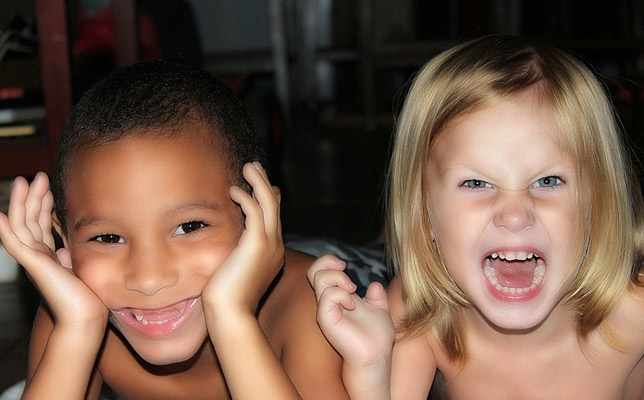This guest post is by Daisy Finn, an adoptive mother.
Four years ago my husband and I became parents. We adopted a baby.
The reason we did it was quite common—inability to have kids of our own.
Back then the diagnosis sounded like a curse and it seemed like our lives had stopped, but we managed to find a solution—adoption.
We didn’t need much time to come up with this decision. We’d been planning to become parents for years, read tons of literature, and attended countless courses for future families.
Our journey as future adoptive parents started right after we went over the terrifying diagnosis.
The process didn’t take as long as we expected.
Agencies estimate a six-to-eight month wait time, but four months after signing the papers we were already matched and waiting for the birthmother to give birth.
We’d spent a lot of time with this woman. I could even say we’d became friends.
Even though the adoption was transracial, we’d never felt any discomfort nor experienced misunderstandings with our son’s birthmother.
The moment he finally entered this realm was the happiest moment in our family’s life.
My husband and I had never been so grateful and our connection became stronger. This was the moment when we realized that our lives were not useless at all.
We never set any boundaries with our son’s birthmother, we understood what an open adoption was and behaved responsibly.
Still, she stopped calling and visiting us after the first year and we lost our connection with her.
Our son has brought meaning to our life. We love him more than anything in this world and will do everything we can to become better and to be a happy family.
Yet transracial adoption appeared to be harder than we thought it would be. We never even thought of circumstances and problems we would face.
And yet we found the solutions easier than expected.
1. Not everyone will approve of your decision to adopt transracially
The first issue was misunderstandings from our friends and relatives. We had rarely mentioned that our child would have a different skin tone before we got him home.
We were shocked to know that not everybody would approve of our decision, and as a result we lost connection with a number of people we had considered close friends.
There are always people who gaze at us while we walk down the park, or play at the beach.
Even in 21st century not everybody understands that it is normal when two white parents have a black baby.
They rarely ask any questions, but when they do it is often offensive.
On the other hand, we’ve met a lot of new people and made new friends. There are a lot of groups of parents who have gone through the same experience as we did.
We communicate with them all the time, share experiences and advice, go to meetings, and even organize outdoor parties.
Our circle of friends is now even wider and consists of people who are supportive and always there to help.
2. It’s important to monitor what your child sees in the media
Another issue was the internet and TV.
We are totally not going to hide anything from our kid, or let his questions remain unanswered.
We want him to know about his culture, who his biological parents are, and provide him with everything he needs and wants to know about himself.
Still, we don’t want him to get confused about anything.
The media is filled with messages that his tender mind might not understand correctly.
So it became necessary to monitor what he sees on TV and what content he might find on the internet.
Kids start surfing the web pretty early these days. Our son learnt how to use a computer at the age of three and since that time it became harder to control what information he sees.
A great relief is that there are tons of parental controls that allow you to do cell phone monitoring, browser tracking, etc. We use Pumpic app and I should say it became our life saver.
3. Some people will think they understand transracial adoption better than you do
It may sound funny, but listening to people who want to help became a problem.
I still can’t understand why most parents, regardless of their skin tone, think that they know better about how to raise our child.
We get tips on everything: education, health and even clothing for our son.
I have no clue why people believe that parents like us don’t know how to behave with our child and perhaps, never will.
It became really annoying so we had to learn to be patient about it and not pay too much attention.
It was frustrating at the beginning, but now we understand that mostly people do this in order to help.
So just smiling and saying “thanks” was a great solution to the problem.
You don’t need to pay attention to those people.
Remember, you are the parents and you know better. And if someone else knows better, which actually happens from time to time, you should be grateful for their advice and listen to it.
My husband, our son and I are happy and that’s the only thing that matters.
Every family has to deal with some issues. And yet they can’t solve all of them.
My advice to every parent who thinks of transracial adoption—don’t be afraid of it.
It may seem harsh, but I assure you there is nothing that a loving family can’t overcome.
Daisy Finn is an adoptive mom from California. Her family has been through a lot, but it’s never been happier than it is now.
Do you have a transracial or open adoption story? Email us or Share it with our community.
Help us remove the stigma surrounding transracial adoption. Like us on Facebook.

